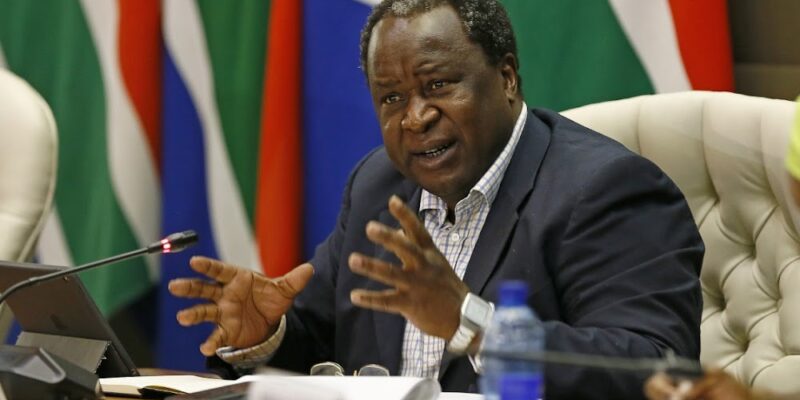I first met Tito Mboweni in the 1980s when he was studying for his master’s at the University of East Anglia.
That period, in part,whetted his appetite for the country, mirrored by the damp and overcast skies that he enjoyed as the Duke of the Duchy of Magoebaskloof, but also informed a real appreciation of the juxtaposition of economic theory, the need to uplift the impoverished and the role that the international order played in shaping events wherever he lived and worked.
About 25 years later I was with him, along with his “adopted parents” who cared for him when he was doing his master’s, for his receipt of an honorary doctorate in civil law at his alma materawarded in 2011, an honour he carried with great pride.
Over the intervening decades, I followed his progress through the many roles he held in the public and private sector (including as minister of labour, governor of the Reserve Bank, minister of finance, chair of Anglo Gold Ashanti), and experienced and benefited from the inspirational and charismatic manner in which he applied his mind and set forth his views.
In many respects uncompromising in his decisions after having consulted, listened and debated, he was forthright, thoughtful, humorous, steadfast and,at all times, unswervingly committed to the cause of establishing robust institutions, insisting on flawless governance, transparent and regular reporting and accountability, and driven to deliver.
When in 2020 we were confronted by the seemingly existential challenges of the pandemic, as minister of finance he ensured that we were flexible and pragmatic despite being consistently focused on fiscal prudence. We had just been downgraded to subinvestment grade status and had entered a recession, so our options were extremely limited. Nevertheless, we relentlessly explored mechanisms to alleviate hardship and provide stimulus, using the National Economic Development and Labour Council (Nedlac) as a primary forum for engagement — an institution that owes its very existence to Mboweni and his colleagues and advisers when he was the minister of labour. He acknowledged and, in many cases, spearheaded the need to compact and align with social partners on critical economic issues.











Comments